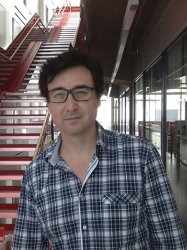Overview
The research of the group is focussed on studying the regulation of cell fitness during development and understanding the selective pressures that act to remove suboptimal cells from the embryo. For this the Rodríguez group takes three approaches that combine the fields of embryology, cell metabolism and cell signalling.
The first approach is to analyse the cell intrinsic determinants of cell fitness with a specific focus on the mitochondria. For example the group studies how changes in the balance of mitochondrial fusion and fission allows the embryo to adapt its apoptotic threshold to the changing metabolic requirements that take place during embryonic development. The group also studies the importance that mitochondrial DNA copy number and sequence has on mitochondrial performance during differentiation.
The second approach that the group takes is to study the cell non-autonomous mechanisms that regulate cell fitness. For this the focus is on cell competition, a quality control mechanism that allows the comparison of fitness levels between cells and results in the elimination of those cells that are less fit than their neighbours, even though they may be viable in a different context. An important implication of our work is that cellular fitness is not only a cell-intrinsic property, but is also determined relative to the fitness of neighbouring cells– a cell that is of sub-optimal fitness in one context may be ‘super- fit’ in the context of a different cell population. The group analysis the mechanisms by which cell fitness is measured between cells and the pathways that respond to this fitness sensing by promoting apoptosis in the less-fit cell type or proliferation in the fitter cell.
Finally, the group also studies the importance of cell competition in disease. For example the importance that cell competition has in the expansion of cancer cells. For this they study how transformed cells such as glioblastoma stem cells use cell competition to eliminate their un-transformed neighbours as a mechanism to expand within the neural stem cell niche.

